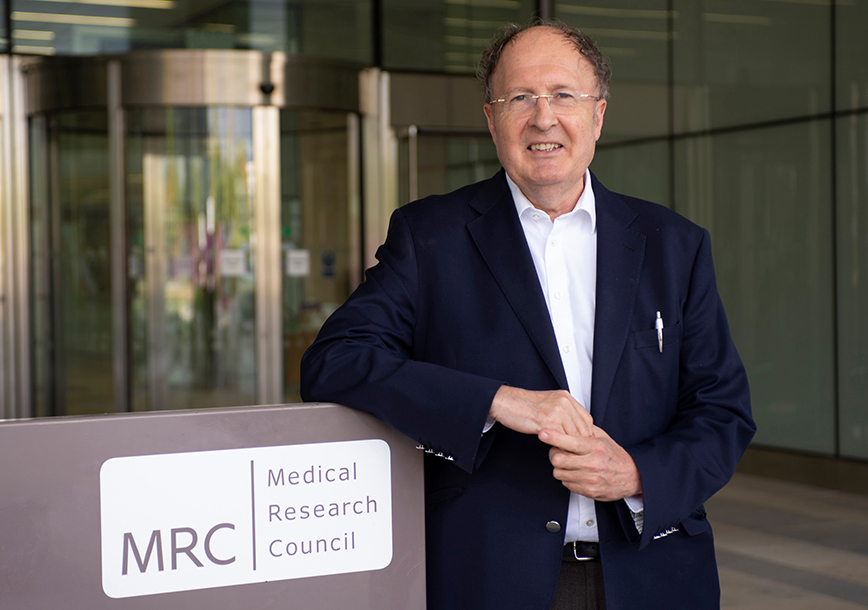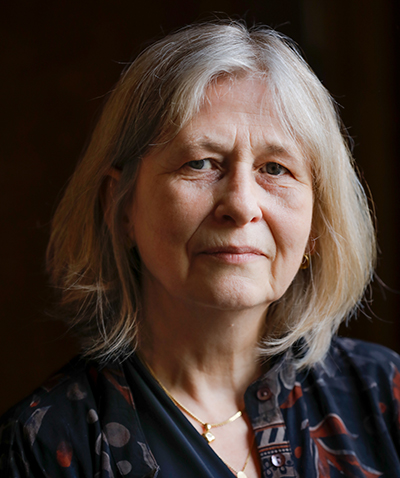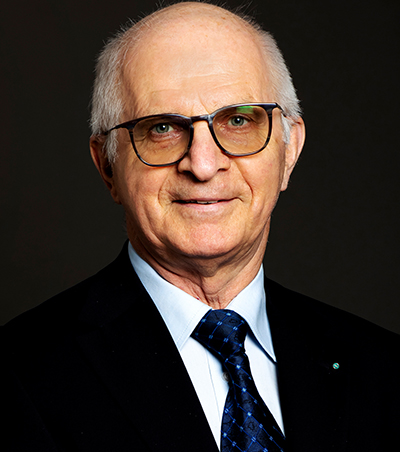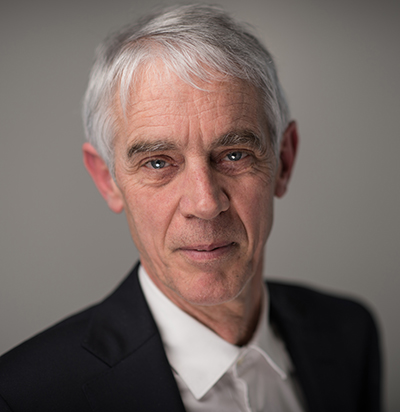Nobel laureate Sir Gregory Winter appointed honorary doctor at KTH

In 2018, he shared one half of the Nobel Prize in Chemistry for the phage display method. Now, Sir Gregory P. Winter is one of four new honorary doctors at KTH.
“It´s a pleasure for me,” Winter says. “From time to time over a scientific career you end up having a fond relationship with one institution or another. And actually KTH is one of them.”
Over the years, Winter has had several contacts with KTH – in particular with Mathias Uhlén, professor of microbiology. Winter visited Uhlén´s research group at the Science for Life Laboratory (SciLifeLab) while he was in Stockholm to receive the 2018 Nobel Prize in Chemistry.
“They are a great group and they are also really nice people. The atlas mapping all human proteins is an astonishing effort and a very useful resource,” Winter says.
A large library of antibodies
Winter has worked with proteins throughout his entire career, working first with enzymes then antibodies. Phage display – the method for which he and George P. Smith from the University of Missouri shared the Nobel Prize in Chemistry in 2018 – can be used to develop new proteins and peptides. Winter first used it to develop human antibody drugs, which can be aimed directly at the disease without affecting the whole body.
Drugs developed using the phage display method are now being used against diseases such as rheumatoid arthritis, inflammatory bowel disease, autoimmune diseases and cancer.
“The method we developed involved the creation of a huge library of antibodies with many different types of activities and features, from which we select the ones we want: phage display offers an extremely effective means of selection,” Winter says. “In fact, it´s the same way as our immune system works. The immune system also generates a huge number of different antibodies against bacteria and viruses from which it chooses those required to attack the pathogen.”
Made new combinations
In order to create this huge library of antibodies, Winter and his group took genes of human antibodies and shuffled them up. An antibody consists of four polypeptide chains, which themselves consist of two identical heavy chains and two identical light chains.
“This gives us a large repertoire of human antibodies from which we can fish out those with the new properties we need,” Winter says. “These are fully human antibodies. All we have done is alter the combinations of heavy and light chains.”
This research was conducted at the MRC Laboratory of Molecular Biology at Cambridge University in the early 80s.
Much later, in the early 2000s, the research team used phage display to generate huge libraries of bicyclic peptides, which can also target proteins associated with disease. The peptides can more easily penetrate tissues than antibodies, making it possible to deliver the peptides deep into tumours.
“We decided to call them bicycles, because they are bicyclic peptides,” Winter says. “From this technology, we started the company Bicycle Therapeutics in 2009, which was floated on Nasdaq in 2018. Currently, we are working on using bicycles to target different types of tumors.”
Grew up in Ghana
It was when he grew up in Ghana that Winter became interested in biology. He attended a mission school for children of parents who worked at the University College of the Gold Coast, later of Ghana, where his father lectured in French.
The school was often visited by academics from the university who showed the pupils various objects and artefacts. One day a scientist brought a huge turtle he had caught. Winter asked the researcher what he intended to do with it and was told that he would take it to the laboratory and do various experiments.
“I would hate to think what happened to that poor animal,” Winter says. “But at the same time, it ignited a spark in me. What a life! Going out to catch wild animals and bring them back and do experiments with them.”
Studied at Trinity College
After attending a boarding school near Leicester, where he was born, and a grammar school in Newcastle, Winter chose to study biology and chemistry at Trinity College at Cambridge University, where he got a degree in Natural Sciences, specialising in biochemistry.
When Winter was doing his PhD, he was very interested in protein development. He was working on a protein chemical project, trying to understand the way enzymes evolved – in particular a very early class of enzymes called aminoacyl-tRNAsynthetase.
“They are the enzymes that puts amino acids on to tRNA,” Winter says. “Effectively they specify the genetic code.”
After working with DNA sequencing for some years, Winter returned to studying how proteins and enzymes work. But at the same time, he felt that there had to be something more exciting than that. And there was: antibodies. Winter´s mentor and head of the MRC Laboratory of Molecular Biology at the time, César Milstein – Nobel laureate in physiology or chemistry in 1984 – encouraged him to work with antibodies.
“He said: `Antibodies are much more interesting than enzymes. You should work with them!´ I am very grateful that he pointed me in that direction.”
Håkan Soold



